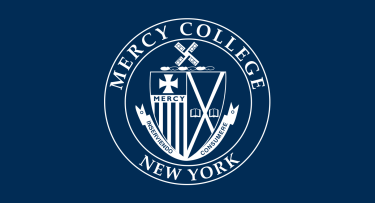Mercy College’s National Model United Nations Delegation Continues Award-Winning Ways

Solving the world’s problems is a tall task, even for the most experienced diplomats and world leaders. Mercy College’s delegation to the National Model United Nations (NMUN), however, has once again shown they are far more than capable tackling the tough issues.
For the seventh-consecutive year, Mercy received an award at the National Model United Nations, earning conference honors in 2019 as a “Distinguished Delegation.”
The competition took place from April 14 to 18 in New York City and attracted over 3,000 students from 180 universities and colleges from over 30 countries, according to Professor Michiko Kuroda, who teaches a two-semester course on the Model United Nations in the International Relations and Diplomacy Program (IRDP) at Mercy.
“By interacting with other students from all over the world, [students] discuss and negotiate – they act like diplomats,” said Kuroda, who spent 30 years working for the United Nations. “It’s not just that they’re sitting in a conference. They interact with each other; they identify issues and try to find solutions; and then they draft resolutions, like United Nations diplomats are doing. They discuss real issues. They have to go outside of their comfort zones and challenge themselves.”
Mercy represented Poland during the sessions, a nation Kuroda requested because of its role on the United Nations Security Council. Also, Poland has been active in issues such as climate change, terrorism and the role of youth – key matters being discussed by Model UN committees. Kuroda felt the Mercy delegation would benefit by learning from actual envoys.
“We visited the Mission of Poland to the United Nations to discuss these issues,” she explained. “It’s real. Studying this on paper is different than meeting with them. This is about their country and about their policies. It was stimulating for [our students].”
The overall experience was very enjoyable for Nicholas Sorice, the head of Mercy’s delegation who was competing in his third conference.
“Participating in NMUN has solidified my beliefs about myself. I have always been a news junkie, and I tend to think on a large scale,” Sorice remarked. “This program requires that type of thinking and a large degree of passion. It has heightened my interest in the specifics of public policy on both the domestic and international level.
“My expectations for this competition were excellence. I am proud of my team for competing at this level and coming as far as they did.”
Delegation member Camilla Gundersen, a native of Norway, chose to transfer to Mercy primarily for the experience of attending the National Model United Nations. She had been a member of the club at her previous school, California State University, Long Beach, but had never been chosen for NMUN.
“My best friend from Norway studied under Professor Kuroda within the IRDP program and was competing in the national conference,” Gundersen said. “I was on the phone with my friend in New York City, and we joked about me transferring to Mercy and competing against my school. From there, we looked into the transferring process. I had a conversation with Professor Kuroda over the phone. I took part in every Model UN conference I possibly could prior to the spring semester in order to prepare, and we made the transfer happen.”
Gundersen acknowledged she sent a picture of the Distinguished Delegation Award to her former team in California but said the experience was much more than worthwhile.
“This experience is crucial for any student wishing to pursue a career within IRDP. It reflects the real working processes of the UN and how the countries tackle global challenges,” she noted. “I was expecting the competition to be high, and this gave me the courage to perform on a high level from day one of the conference. The simulation really allows students to deeply consider and find creative solutions for current real-world problems.”
Kuroda, who has helped previous students obtain work at the United Nations, knows this Model United Nations experience will prepare Mercy’s current delegation for future success regardless of the paths they choose.
“They get outside of their comfort zone. They’re networking. It’s different level of learning, so they gain a lot of confidence,” she said. “If they focus on what they want to do, they can achieve.
